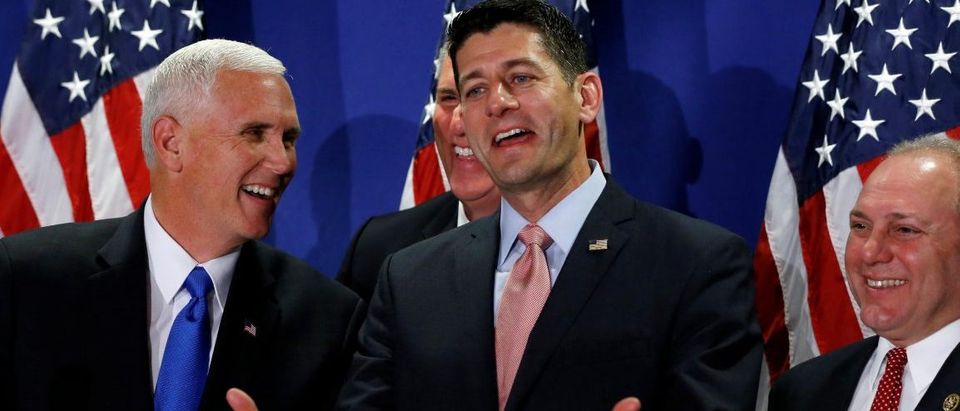The debt ceiling has been a source of contention between the legislative branch and the executive branch for years. As president, Donald Trump will have to work with Congress to raise or suspend the debt ceiling, which will be reached this summer because of the irresponsible spending and policies of presidents and Congresses past. With Trump as president, and Republicans controlling both the House and Senate, the opportunity exists to advance a conservative agenda while increasing the debt ceiling.
It seems counterintuitive that putting our nation deeper into debt is a chance to make conservative reforms a priority. Back in 2011, Republicans in the House and the Senate traded an increase in the debt ceiling for cuts in spending that were “evenly split between defense spending — with spending on wars exempt — and discretionary domestic spending, which exempts most spending on entitlements like Social Security and Medicaid.” The deal, known as the Budget Control Act (BCA), is far from perfect. Defense hawks bemoan the impact the BCA has on military spending, and fiscal conservatives complain that the BCA ignores a primary driver of our federal spending, entitlement programs. These concerns are real and significant, but at least the BCA made an effort to get some concessions on spending, however modest, on the books.
That was until 2015. In the fall of that year, President Obama and then-Speaker of the House John Boehner united to bust the budget caps with the Bipartisan Budget Act of 2015. The appetite for irresponsible spending in Washington DC is insatiable, as demonstrated by the fact that the modest accomplishments of the BCA were undone by wide margins the House and Senate. All the while, the debt ceiling has continued to be suspended numerous times, and Congress punted on spending reforms, to the certain delight of the President Obama, who has made a career inside the Beltway of spending other people’s money carelessly.
Sometime next summer, the debt ceiling will be hit yet again. Consider it President Obama and Speaker Boehner’s housewarming gift to the new occupant of 1600 Pennsylvania Avenue. The debt ceiling will have to be raised, since “federal debt is the sum of debt held by the public and debt held by government accounts.” Uncle Sam borrowed the money, now he has to pay it back. He will use our tax dollars to do it.
Republicans on Capitol Hill should work with the Trump White House to link increasing the debt ceiling with passing fiscally responsible measures. Republicans have to be careful not to negotiate against themselves in the process. They should not focus on dollar for dollar cuts for hiking the debt ceiling. Instead they should work to make spending cuts in a targeted way that will help fix federal finances, and serve a philosophical statement about how the Republicans will govern.
Resisting the urge for a grand bargain, Majority Leader McConnell, Speaker Ryan, and President Trump should pursue a package that is pragmatic and deliverable, and that will impact taxpayers positively and relatively quickly. The plan could include the tax cuts candidate Trump proposed, which are estimated to “produce an 11.5 percent rise in GDP over the coming decade, provided it were accompanied by appropriate offsetting savings or financing.” Combining that with elements of the Republican Study Committee’s Blueprint for a Balanced Budget 2.0, parts of Speaker Ryan’s Better Way proposal, recommendations like those from Citizens Against Government Waste to cut government spending, and the backbone of the House Freedom Caucus, will give Republicans a chance to turn the pain of hiking the debt ceiling into a tangible down payment on improving our economic prospects.
Grand bargains, moonshots, and silver bullets are often chased by lawmakers and presidents. They are elusive and enigmatic. It will be tempting for the new Congress and the new president to pursue them. Instead, they should work methodically and steadily to turn lemons like the debt ceiling into the lemonade of conservative reform. The taxpayers are parched. Pairing the debt ceiling increase with conservative solutions that are already on the table can provide the refreshment they and the economy need.
Neil Siefring is director of government relations for FreedomWorks. His views are his own. Follow him on Twitter @NeilSiefring.


